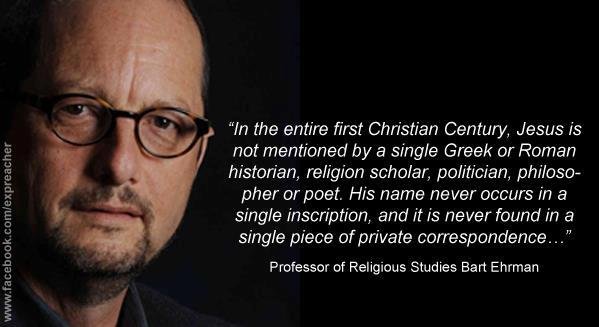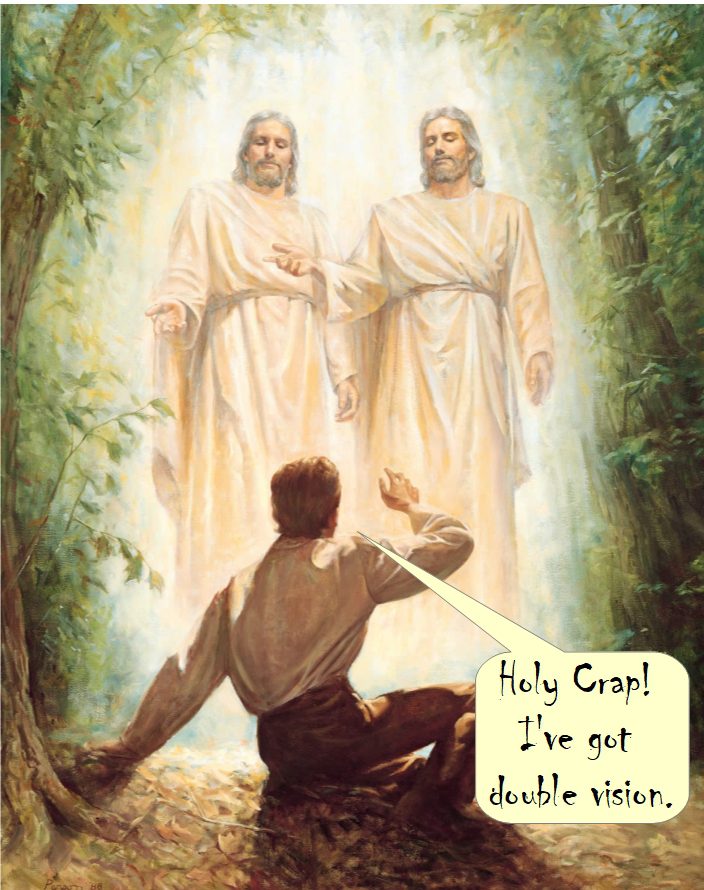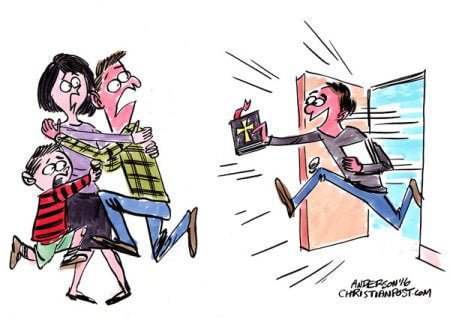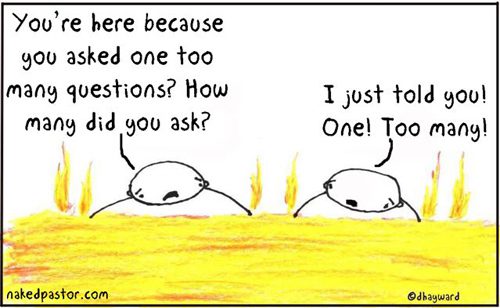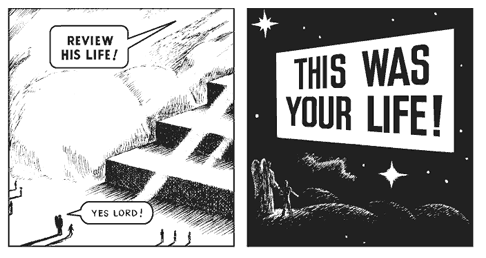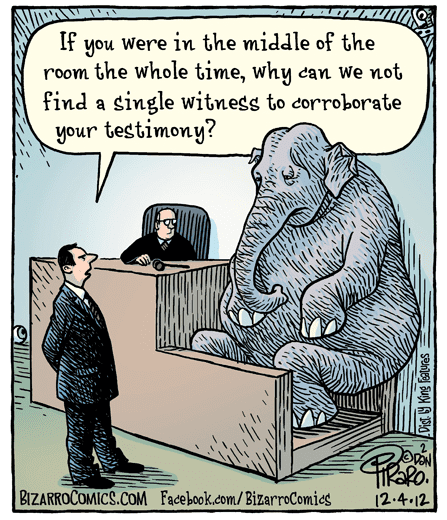
Those of us who have Christian families often refer to our “unbelief” as the elephant in the room. My wife, Polly, and I last attended church in November 2008. For a time, Polly’s mom would ask Poll to attend church with her when they were here visiting, but after being rebuffed several times, she stopped asking. As long-time readers know, when I decided that I was no longer a Christian, I sent a letter to several hundred of my friends, family, and former parishioners. This letter caused quite a stir, resulting in a personal visit from a pastor friend and emails and letters from colleagues in the ministry and people who once called me pastor. Several churches held prayer meetings specifically to pray for me, hoping their concerted prayer would cause God to bring me back into the fold. Several pastors took to the pulpit and preached sermons about Bruce Gerencser, the pastor turned atheist (sermon by Ralph Wingate Jr. and sermons by Jose Maldonado). What’s interesting in all of this is that our family didn’t say a word to either Polly or me. One man, an IFB evangelist, did attempt to talk to me, but he was told to stop doing so by one of the older preachers in the family. While we’ve certainly heard gossip about this or that behind-the-back discussion about us, and we were told that the family patriarch planned to straighten me out, (please see (The Family Patriarch is Dead: My Life With James Dennis) not one family member has sat down and had an honest and open discussion with either of us. Our deconversion and my outspokenness concerning Evangelicalism and atheism is a huge rainbow-colored elephant that everyone can see, but no one acknowledges. While I know that some family members regularly read this blog, no one has engaged in any sort of discussion with us about why we left the ministry, deconverted, and are now happy HBO-watching, wine-drinking unbelievers.
Some seasoned atheists recommend that the recently deconverted shine a bright light on the elephant and force people to see it. That’s what I did with my letter to family, friends, and former parishioners. While this approach worked for our friends and former parishioners, family just went over to the wall switch and turned off the light. To some degree, I understand their reaction. I was their preacher brother, uncle, son-in-law, and father for as long as they could remember. From 1972 to 2008, I was the family preacher, and when Polly and I married in 1978, I married into a family of pastors, missionaries, and evangelists. Every aspect of our lives was dominated by Christianity, the Bible, and the work of the ministry. And then, BOOM, all that was gone, and Rev. Bruce Gerencser and his wife Polly are now numbered among the godless. I suspect that the cognitive dissonance this causes for some family members is too much for them to handle, so they pretend that there is no elephant in the room. This is why some family members still think we are saved. We are just backslidden, out of the will of God, and they are certain we will one day return to the faith.
Some atheists take a different approach when discussing their deconversion with family and friends. Several years ago, I watched Chicago PD, a procedural program about an élite force of detectives in the Chicago police department. One of the detectives, Erin Lindsay, played by actress Sophia Bush, is struggling with family and addiction problems. She seeks out the help of a counselor named Dr. Charles, played by actor Oliver Platt. Dr. Charles asks Detective Lindsay, how do you get the elephant out of the room? Lindsay had no answer to the question. Dr. Charles replied, one piece at a time. Instead of taking the approach I detailed in the previous paragraph, some atheists take Dr. Charles’s advice and begin dismantling the elephant one piece at a time. While this approach certainly results in less stress, it can take quite some time. Atheists have to be willing to leave some issues on the table to be discussed another day. Not everyone can do this, preferring to get every issue out in the open so it can be discussed. Once this is done, there’s no need for any further discussion.
I’ve had countless new atheists and agnostics write me about how best to handle their Christian spouses, children, parents, extended family, or friends. I never tell them that they should do this or that. Every person must carefully examine his or her life and the connections each has with others before deciding how to proceed. While every atheist certainly wants the elephant out of the room, there are different ways to accomplish it. I wrote about this in the post titled, Count the Cost Before You Say I am an Atheist. Acting rashly or in a fit of anger can have catastrophic consequences. Once a person decides to talk with Christian family and friends about their deconversion, there’s no going back. Once a person utters out loud, I am an atheist, what happens next is out of their control. I know of married people whose spouses divorced them over their deconversion. Some people have had their families excommunicate them, refusing to allow them in their homes until they come to their senses. Others receive emails, phone calls, and social media comments from family and friends about their deconversion. Often these statements are barbed with outrage, anger, and hurt. More than a few atheists have been forced to unfriend Christian family members and friends on Facebook. Sadly, more than a few times, something I’ve written has been posted to an atheist’s Facebook wall, and it has resulted in the newly minted atheist being attacked by offended Christians.
I’d love to hear from readers about how they handled the elephant in the room. Please share your thoughts in the comment section.
Bruce Gerencser, 68, lives in rural Northwest Ohio with his wife of 47 years. He and his wife have six grown children and sixteen grandchildren. Bruce pastored Evangelical churches for twenty-five years in Ohio, Texas, and Michigan. Bruce left the ministry in 2005, and in 2008 he left Christianity. Bruce is now a humanist and an atheist.
Your comments are welcome and appreciated. All first-time comments are moderated. Please read the commenting rules before commenting.
You can email Bruce via the Contact Form.

